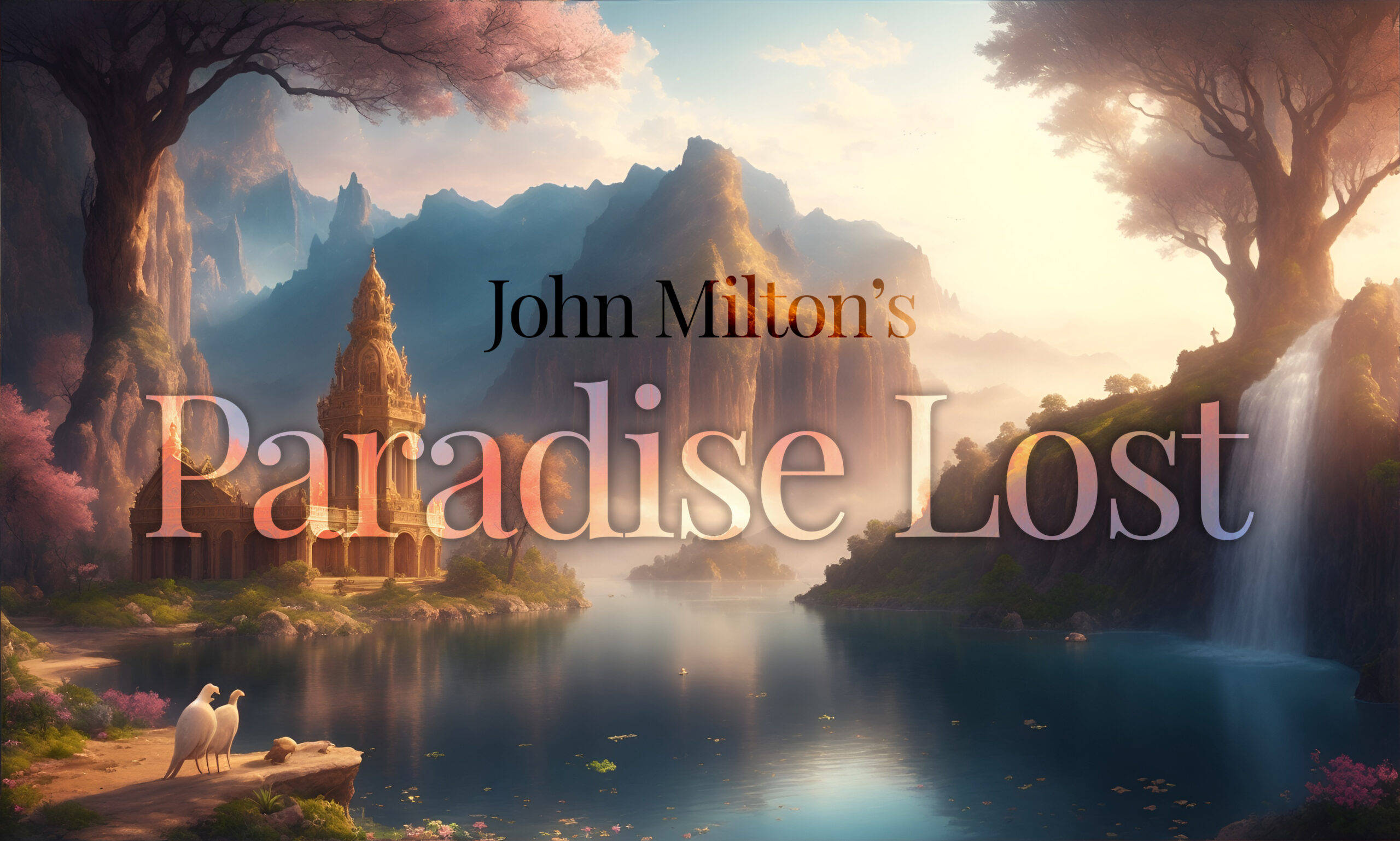
Milton’s Invocation in Paradise Lost
The invocation in John Milton‘s epic poem Paradise Lost serves as an essential prologue, setting the stage for the grand narrative that follows. Through the invocation, Milton establishes his purpose, seeks divine inspiration, and invokes the guidance of the Holy Spirit. This introductory section not only prepares the readers for the epic journey ahead but also highlights the poem’s religious and literary ambitions. In this analysis, we will explore the significance of the invocation in Paradise Lost, examining its structure, themes, and rhetorical strategies.
The invocation in Paradise Lost begins with Milton addressing the Heavenly Muse, acknowledging her presence and seeking her assistance in recounting the story of mankind’s fall from grace. He seeks the muse’s inspiration to undertake a daunting task – the retelling of the biblical narrative of Adam and Eve’s expulsion from the Garden of Eden. This invocation follows the classical tradition of invoking the muse for divine inspiration, as seen in the works of Homer and Virgil. Milton’s invocation, however, takes on a uniquely Christian context, as he turns to the Holy Spirit for guidance.
Milton’s invocation serves multiple purposes. Firstly, it establishes the religious and theological framework of the poem. The invocation aligns Paradise Lost with the biblical narrative, emphasizing its divine inspiration and grounding it in Christian tradition. By seeking the guidance of the Holy Spirit, Milton emphasizes the importance of his work as a vehicle for moral and spiritual enlightenment.
Secondly, the invocation sets the tone and scope of the poem. It establishes Paradise Lost as an epic of cosmic proportions, dealing with weighty themes and addressing the fundamental questions of humanity’s relationship with God and the nature of good and evil. Milton declares his intention to “justify the ways of God to men” (Book I, line 26), signaling his ambition to explore profound theological and philosophical ideas.
Structurally, the invocation in Paradise Lost consists of several sections. It begins with an address to the Heavenly Muse, followed by a justification of the poetic undertaking and a plea for inspiration. Milton then transitions to a reflection on his blindness and his dedication to his task, before concluding with a prayer for the Spirit’s guidance and his commitment to glorify God through his writing.
In the opening lines of the invocation, Milton addresses the Heavenly Muse, whom he identifies as the Holy Spirit. He acknowledges her presence, saying, “Descend from Heaven, Urania, by that name / If rightly thou art called” (Book I, lines 6-7). By associating the muse with Urania, the Muse of Astronomy in Greek mythology, Milton establishes a link between the divine inspiration he seeks and the celestial realm.
Milton then explains his purpose for undertaking this epic poem. He declares his intention to “assert eternal Providence, / And justify the ways of God to men” (Book I, lines 25-26). In these lines, Milton sets the stage for the moral and theological exploration that Paradise Lost will undertake. He aims to provide an account that elucidates the ways of God and clarifies His justifications to humanity.
The poet’s plea for divine inspiration forms a significant part of the invocation. Milton acknowledges the magnitude of his task, recognizing his own limitations and the need for divine assistance. He says, “What in me is dark / Illumine, what is low raise and support” (Book I, lines 22-23). This humble plea underscores the poet’s reliance on the Holy Spirit’s illumination to navigate the complexities of his subject matter and communicate it effectively to his readers.
As the invocation progresses, Milton reflects on his own personal circumstances, particularly his blindness. He laments his physical condition but asserts that his inner vision and spiritual insight remain intact. He proclaims, “But who I was, or where, or from what cause, / Knew not; to speak I tried, and forthwith spake” (Book I, lines 16-17). These lines emphasize Milton’s determination to overcome his physical limitations and let his poetic voice be heard.
In his reflection on his blindness, Milton also highlights the concept of inner sight or intellectual vision. He states, “So much the rather thou, celestial Light, / Shine inward, and the mind through all her powers / Irradiate” (Book I, lines 22-24). This passage underscores the poet’s belief that true understanding and insight come from divine enlightenment and the illumination of the mind.
The invocation concludes with a prayer for the Spirit’s guidance and a commitment to glorify God through his writing. Milton implores, “O Spirit, that dost prefer / Before all temples the upright heart and pure, / Instruct me, for thou know’st; thou from the first / Wast present” (Book I, lines 34-37). Here, Milton acknowledges the divine presence and wisdom of the Holy Spirit, recognizing that true understanding comes from a sincere and virtuous heart.
The significance of the invocation extends beyond its immediate function as a prologue. It sets the stage for the overarching themes and ideas that Paradise Lost will explore throughout the poem. The invocation introduces themes of divine providence, human disobedience, and the consequences of moral transgression. It also establishes Milton’s commitment to glorifying God and seeking spiritual enlightenment through his poetic endeavor.
Through the invocation, Milton merges classical and Christian traditions, employing the structure and conventions of classical epics while infusing them with a distinctly Christian worldview. The invocation not only establishes the religious and theological foundations of Paradise Lost but also serves as a declaration of Milton’s poetic purpose and his devotion to divine inspiration.
In conclusion, the invocation in Paradise Lost serves as a vital prelude to the epic poem, establishing its religious, theological, and literary foundations. Milton seeks the assistance and inspiration of the Heavenly Muse, whom he identifies as the Holy Spirit. The invocation sets the tone, scope, and purpose of the poem, addressing weighty themes and exploring profound questions of human existence and the nature of good and evil. It reflects Milton’s humility, his commitment to glorify God, and his reliance on divine illumination. The invocation serves as a gateway to the grand narrative that follows, preparing the readers for the epic journey into the realms of heaven, hell, and the human experience.
*****
Read More: Questions and Answers from Paradise Lost by John Milton


